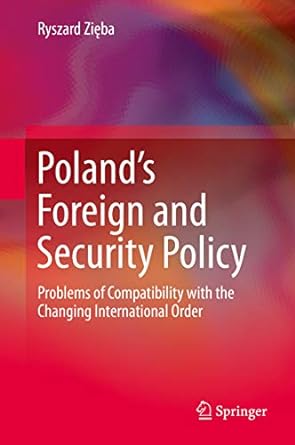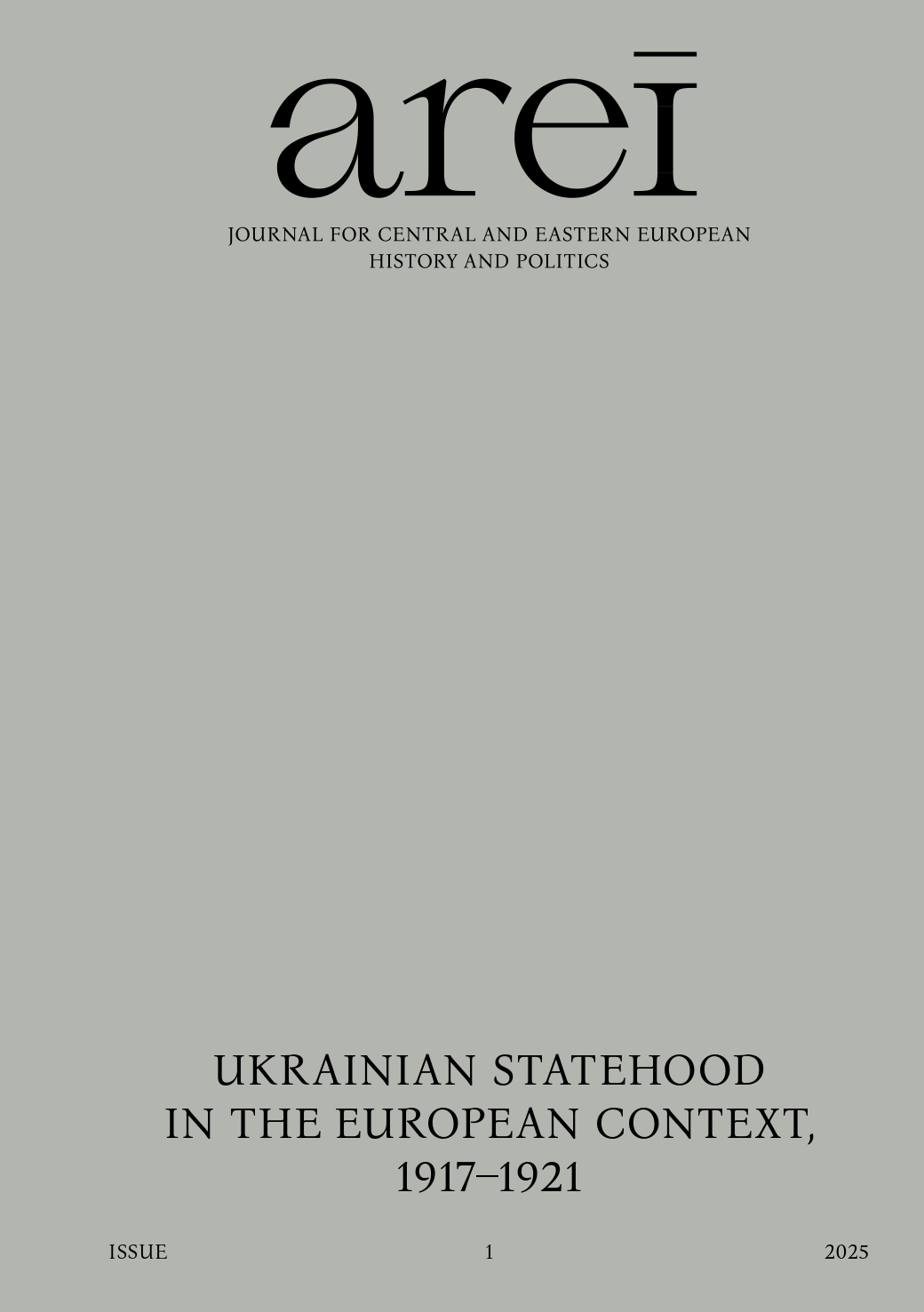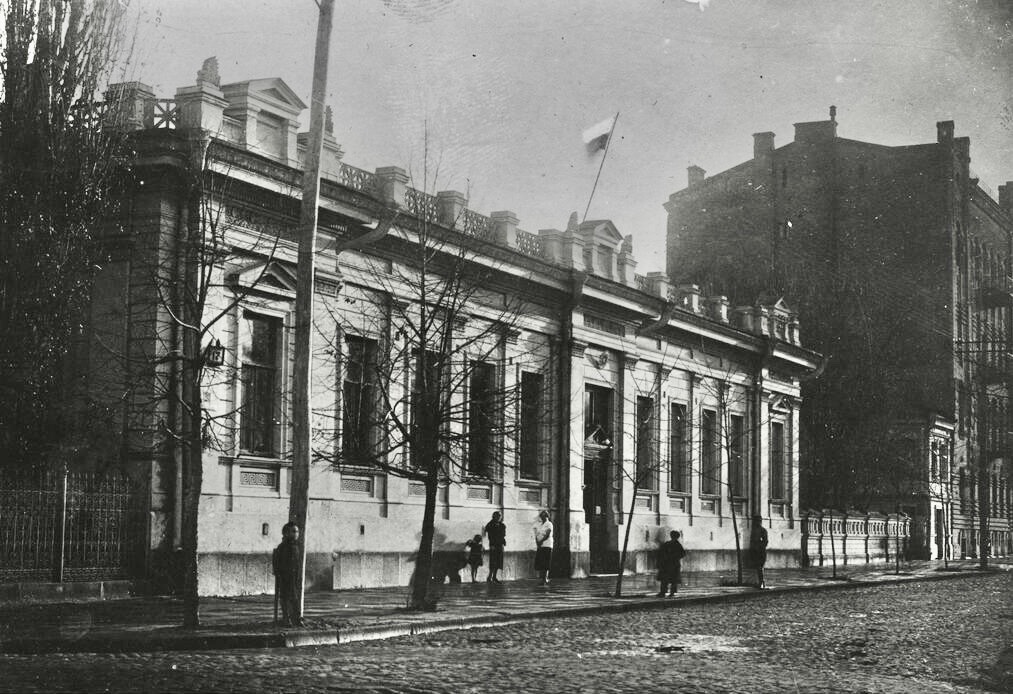With extensive studies on Poland’s foreign and security policy being published rather infrequently, it is not surprising that the monograph by Prof. Ryszard Zięba that is reviewed here was destined to receive close attention from the research community. The book describes Poland’s interactions with leading international organizations and the most influential countries in the world. It provides a detailed overview of the challenges and issues that Poland’s foreign policy faces. In addition, the author shares his original perspective on what the European security system should look like, and what role in it should be assigned to Poland.
Prof. Zięba chooses neorealistic theory of international relations as his main theoretical framework. In his book, he frequently cites Kenneth Waltz and Stephen Walt; concurrently, the influence of John Mearsheimer, the founder of offensive realism, remains particularly strong. Following the latter, Prof. Zięba often deviates from the postulates of neorealism and resorts to primitive geopolitical conspiracy theories, oversimplifying the subject matter. For example, he claims that after the collapse of the USSR a new world order was established, at the foundation of which was the “hegemony of the United States”. One should note here that the hegemony of one state has never existed within international relations: one state cannot effectively control security at the global level. In other words, the notion of such a hegemony is a misconception. Even offensive realists acknowledge that in a world where several nuclear powers exist, achieving hegemony is absolutely impossible.[1]
Prof. Zięba’s main thesis revolves around the idea that the defining role in international relations is assigned to the five “great powers”, namely the permanent members of the UN Security Council. In doing so, he almost completely de-subjectivizes the small and medium-sized European states. In this regard, Prof. Zięba contradicts the theoretical framework he himself has chosen. While neorealism prioritizes the “great powers”, it does not reduce the small and medium-sized countries to mere puppets or “vassals”. For example, Waltz argues that all states are sovereign and have the opportunity to choose their “strategies for survival”.[2]
The impression left by the book is undermined not only by its methodological inconsistency, but also by systematic carelessness in presenting facts. Let me mention several representative examples. For instance, Prof. Zięba claims that during the 2008 NATO Summit in Bucharest, only Poland and the United States promoted the idea of Ukraine and Georgia’s membership in NATO (p. 262). In fact, both these candidate countries were fully supported by Canada, Bulgaria, Estonia, Latvia, Lithuania, Romania, Hungary, Slovakia, the Czech Republic, and Slovenia.[3] For example, on the eve of the summit, Traian Băsescu, the President of Romania, stated that “Romania supports with no reservations and with many arguments” Ukraine’s participation in the NATO Membership Action Plan,[4] while Toomas Hendrik Ilves, the President of Estonia, called on allies not to succumb to Russian blackmail and to support Ukraine’s Euro-Atlantic aspirations.[5]
Consciously or not, Prof. Zięba has made yet another gross factual error. Accusing Polish leadership of militarizing the country, he writes that the military parade organized in Warsaw on 15 August 2018 in honour of the Polish Armed Forces Day, in which some 1,000 soldiers and 900 reenactors participated, supposedly exceeded the scale of the Victory Parade in Moscow on May 9th (p. 121). In reality, in 2018 more than 13,000 soldiers[6] participated in the parade in Moscow, making the Warsaw parade a rather modest event overall.
Furthermore, Prof. Zięba erroneously claims that during the process of German reunification, the USA and its European allies committed to Russia not to build NATO military infrastructure on the territories of the new member states, allegedly confirming such a commitment in the 1997 NATO-Russia Founding Act (p. 41). By doing so, he ignores the abundance of research carried out by historians at various archives, as well as memoirs of politicians testifying that the West did not give – and could not have given – any promises to Moscow regarding the non-inclusion of Central and Eastern European countries in NATO.[7] In fact, in 1990 the discussion revolved around ensuring that NATO military infrastructure would not be extended to the territory of East Germany, and NATO fulfilled this obligation. As for the NATO-Russia Founding Act of 1997, it recorded NATO’s commitment not to deploy nuclear military facilities on the territories of its new member states, and this commitment is still being fully implemented by the Alliance.
It is puzzling that Prof. Zięba demands Warsaw to abide by certain oral promises regarding NATO expansion, allegedly given at a time when Poland was not yet a member of the Alliance. This persistence on the professor’s side seems even more odd when we consider that, within the neorealist paradigm he has chosen, the great powers’ disregard for written, let alone oral, international norms and rules is considered quite normal from the standpoint of the anarchic nature of international relations.[8]
Prof. Zięba considers NATO expansion the main threat that has provoked a crisis in the modern European security system. This thesis echoes the misconceptions of Kenneth Waltz, who falsely equated NATO expansion with the expansion of the Roman, Russian, and British Empires.[9] Waltz completely ignored the fact that the aforementioned empires expanded through wars and forcible annexations, whereas NATO is an organization whose members join through a process of voluntary accession, without bloodshed, by their sovereign will, rationally assessing the benefits and consequences.
Meanwhile, in his deliberations on NATO, Prof. Zięba goes further than Waltz. While Waltz writes about Russia’s “reasonable fears” regarding the accession of post-Soviet states to the NATO Alliance, Zięba argues that NATO expansion has engendered “justified fears” in the Kremlin regarding the hostile intentions of the West towards Russia itself (p. 190). Even after the onset of Russia’s full-scale invasion of Ukraine, Prof. Zięba continues to assert, in line with official Russian propaganda, that “NATO expansion” disregards “Russia’s vital security interests”, while its power could be used directly against Russia.[10]
Prof. Zięba views Poland’s accession to NATO extremely negatively. He writes that in doing so Warsaw has assumed the role of a “US satellite” (p. 270). He advocates for Poland to play the role of a bridge between the West and the post-Soviet space (p. 38). This somewhat outdated concept was completely rejected by the Polish leadership as early as the mid-1990s.[11] Its acceptance would lead to the demise of Poland’s prospects for European integration, as well as its entrenchment in the grey buffer zone between Russia and the West. Today, the majority of Polish experts rightly recognize that a “balancing act” between the West and Russia would be detrimental to Poland as it would contribute to Russian attempts to isolate Poland from the Euro-Atlantic structures that largely guarantee its security and sovereignty.[12] Understandably, Prof. Zięba does not belong to this circle of experts. On the contrary, he seeks to isolate Poland on the international stage and reduce its level of interaction with the US, without taking into consideration how detrimental such a step could be for both Poland and Europe.
In Prof. Zięba’s worldview, Poland is often portrayed as a “satellite state”, “client state”, and “vassal” of the USA, unconsciously playing the assigned role of the “local sheriff” for Eastern Europe. He does not delve into the analysis of these terms, as is customary in reputable scholarly literature. He does not specify the differences between them, while the main confirmation of Poland’s compliance with these roles, in his opinion, lies in Warsaw’s unwavering support for the ‘colour’ revolutions in the post-Soviet space (p. 108). He writes extensively and eagerly about them, immersing the reader in a world of conspiracy theories. Prof. Zięba falsely claims that the change of regimes in post-Soviet countries was orchestrated by the USA and the CIA (p. 174). He defines the colour revolutions as a Western tool for exporting democracy “in the Eastern part of Europe” (p. 244). Thus, he completely devalues the internal factors of political change in the post-Soviet space.
Prof. Zięba’s view on the Ukrainian Revolution of Dignity in 2013–2014 demonstrates a particularly large amount of speculation and bias (pp. 181–82). For example, he believes that the refusal of the Ukrainian government to sign the Association Agreement with the EU in Vilnius was due not to Russian blackmail but to “Ukraine’s great economic difficulties and close economic ties with Russia, in which Ukraine was the dependent party”. Following Russian propaganda, Zięba refers to the change of power in Kyiv in February 2014 as a “coup d’état”. He characterizes the position of the Polish government regarding the annexation of Crimea as “hysterical” since, in his view, there were no grounds to believe that Russia would commit an act of armed aggression against Poland or the Baltic States following Crimea. Essentially, this statement suggests that Zemba would hardly object to the Russian army seizing not only Crimea but also all of Ukraine. Overall, when describing Ukraine, Prof. Zięba uses exclusively negative epithets, portraying it as an undemocratic, corrupt country controlled by oligarchs. He also claims that manifestations of fascism are allegedly tolerated in the western part of Ukraine (pp. 29, 180).
A substantial part of the book is dedicated to an overview of the trajectory of Poland’s Russian foreign policy. Russia appears to be one of the most frequently mentioned foreign states in the book. This can be explained by Prof. Zięba’s aversion to the “hegemony of the USA” in international relations, and the fact that he sees Russia as a counterbalance. Moreover, the book does not offer any serious objections to the idea of Russia dominating the post-Soviet space and satisfying its territorial claims at the expense of neighbouring states. Instead of blaming Russia for the illegal annexation of Crimea, Prof. Zięba blames the USA and NATO (p. 48). According to him, their involvement in geopolitical competition for Ukraine provoked Russia’s annexation of Crimea and support for separatism in Donbas. Presumably, Prof. Zięba justifies Russia’s full-scale invasion of Ukraine in 2022 in the same vein.
When it comes to Russian–Polish relations, Prof. Zięba observes that they are now at their worst in thirty years. He puts the blame on Polish authorities for their alleged deeply rooted “Russophobia”. He believes that the claim that Russia poses a threat to Poland’s independence is greatly exaggerated and is the result of social engineering” (p. 67). As he has written elsewhere, “politicians from Poland and some other new EU member states attribute to Russia expansionist aspirations and efforts to widen its sphere of influence in Europe. They do this in order to justify their policy of pushing Russia out of Europe”.[13] History has already proven that those politicians and analysts who, after the Russian-Georgian war of 2008, warned that Russia would not stop there and that Ukraine would be its next target, provided entirely adequate assessments of European security challenges. Those who downplayed the threat from Russia, characterizing the warnings by Polish politicians as “hysterical” and urging the West to appease Putin’s empire, turned out to be wrong.
By labelling Poland as “Russophobic”, Prof. Zięba employs the same trick of substituting concepts as Russian officials would. The Kremlin constantly labels justified assessments of the security threats posed by its aggressive foreign policy as “phobias” – groundless and irrational fears that aim to portray Poland and the Baltic states as irrational and incapable states.[14] Therefore, with his monographs Prof. Zięba assists the Kremlin in this endeavour. Instead of discussing the real danger posed by Putin’s Russia, Zięba urges Warsaw not to antagonize Russia (p. 41) and not to increase spending on national defence, spreading instead horrifying predictions of a new arms race and a third world war (p. 121).
In his endeavour to whitewash Russia, Prof. Zięba goes so far as to accuse the Polish government of failing, in 2015–2019, to make any progress on returning the wreckage of the presidential plane that crashed in 2010 (pp. 67–68). His accusations against the Polish government are entirely unfounded, as in this case the responsibility for returning the wreckage lies entirely with the Russian side. According to Annex 13 of the Chicago Convention of 1944, Russia is obligated to return debris to the Polish side immediately upon completion of the technical investigation. All technical procedures had been completed by the Russian Interstate Aviation Committee as early as January 2011, and a report was published.[15] In May 2012, during her visit to Warsaw, Valentina Matviyenko, Chairwoman of the Federation Council, assured the Polish side that Russia would return the wreckage “within the next few months”,[16] but this has never happened. In 2015 and 2018, respectively, the European Parliament and PACE adopted resolutions calling on Russia to return the wreckage to Poland in accordance with international law.[17] It should be noted that since the completion of the technical investigation into the crash, the Polish government, regardless of its partisan composition, has regularly appealed to the Russian side to fulfil its international obligations. The last time this was done was by Zbigniew Rau, the Polish Foreign Minister, in the fall of 2021 during the UN General Assembly meetings in New York.[18] The Russian side left the request unanswered.
Overall, despite its rather ambitious title, Prof. Zięba’s monograph can hardly be considered a successful example of profound and serious analysis of Polish foreign policy. Rather, it can be described as a pseudo-scholarly way of promoting Kremlin propaganda narratives. This book will undoubtedly appeal to conspiracy theorists and anti-Americanism adherents, but it is highly unlikely to be regarded among Polish decision-makers as a source of wisdom and forward-thinking decisions.
[1] John J. Mearsheimer, The Tragedy of Great Power Politics (New York: Norton, 2001), p. 6, 140.
[2] Kenneth N. Waltz, The Theory of International Politics (Reading: Addison-Wesley Publishing Co., 1979), p. 96; Kenneth N. Waltz, ‘Structural Realism after the Cold War’, International Security, 25 (2000), 5–41 (p. 38).
[3] Judy Dempsey, ‘U.S. pushing to bring Ukraine and Georgia into NATO’, The New York Times, 3 November 2008, <https://www.nytimes.com/2008/02/13/world/europe/13iht-nato.4.10021504.html> [accessed: 12 December 2023]; Adrian Vierița, ‘The Bucharest Summit: Romania’s Perceptions of NATO’s Future’, Wilson Center, 26 March 2008, <https://www.wilsoncenter.org/event/the-bucharest-summit-romanias-perceptions-natos-future> [accessed: 12 December 2023]; Visegrad Group, ‘Joint Statement of the Ministers of Foreign Affairs of the Visegrad Group Countries’, 23 April 2008, <https://www.visegradgroup.eu/2008/joint-statement-of-the> [accessed: 12 December 2023]; Government of Canada, ‘Prime Minister Harper Backs Ukraine’s Progress Toward NATO Membership’, 2 April 2008, <https://www.canada.ca/en/news/archive/2008/04/prime-minister-harper-backs-ukraine-progress-toward-nato-membership.html> [accessed: 12 December 2023]; Hugh Williamson, ‘Germany blocks ex-Soviets’ Nato entry’, Financial Times, 1 April 2008, <https://www.ft.com/content/ab8eb6a6-ff44-11dc-b556-000077b07658>[accessed: 12 December 2023]; Sergey Sukhankin, ‘Ukraine’s Thorny Path to NATO Membership: Mission (im)possible?’, ICDS Commentary, 22 April 2019, <https://icds.ee/en/ukraines-stony-path-to-nato-membership-mission-impossible/> [accessed: 12 December 2023]..
[4] Traian Băsescu, ‘On the road to the Bucharest Summit’, NATO Review, 27 March 2008, <https://www.nato.int/docu/review/articles/2008/03/27/on-the-road-to-the-bucharest-summit/index.html> [accessed: 12 December 2023]..
[5] NATO, ‘Joint press point with NATO Secretary General Jaap de Hoop Scheffer and Estonian President Toomas Hendrik Ilves’, 4 February 2008, <https://www.nato.int/docu/speech/2008/s080204a.html> [accessed: 12 December 2023]..
[6] President of Russia, ‘Military Parade on Red Square’, 9 May 2018, <http://kremlin.ru/events/president/news/57436> [accessed: 12 December 2023]..
[7] For detailed analysis of the subject, see Mary Elise Sarotte, ‘A Broken Promise? What the West Really Told Moscow about NATO Expansion’, Foreign Affairs, 93 (2014), 90–97 (p. 96); Hannes Adomeit, ‘NATO’s Eastward Enlargement: What Western Leaders Said’, Security Policy Working Paper, 3 (2018), Federal Academy for Security Policy, <https://www.baks.bund.de/sites/baks010/files/working_paper_2018_03.pdf> [accessed: 12 December 2023].; Steven Pifer, ‘Did NATO Promise Not to Enlarge? Gorbachev Says “No”’, The Brookings Institution Commentary, 6 June 2014, <https://www.brookings.edu/articles/did-nato-promise-not-to-enlarge-gorbachev-says-no/> [accessed: 12 December 2023]..
[8] Mearsheimer, The Tragedy of Great Power Politics, pp. 362–65.
[9] Kenneth N. Waltz, ‘NATO expansion: A realist’s view’, Contemporary Security Policy, 21 (2000), 23–38 (p. 34).
[10] Ryszard Zięba, ‘Where Does NATO Enlargement Lead To?’, Transatlantic Policy Quarterly, 22 (2023), 39–51 (p. 40).
[11] Przemysław Grudziński, Raport Polska-Rosja: niezgoda i współpraca (Warszawa: Centrum Stosunków Międzynarodowych Instytutu Spraw Publicznych, 1997), pp. 49–50; Krzysztof Górski and Krystian Piatkowski, Dylematy polskiej polityki wobec NATO i Rosji (Warszawa: PISM, 1995), p. 9.
[12] Justyna Gotkowska, ‘Wymyślić siebie na nowo? Transformacja Zachodu a bezpieczeństwo Polski’, Klub Jagielloński, 29 marca 2021, <https://klubjagiellonski.pl/2021/03/29/wymyslic-siebie-na-nowo-transformacja-zachodu-a-bezpieczenstwo-polski/> [accessed: 12 December 2023].
[13] Ryszard Zięba, ‘Międzynarodowe implikacje kryzysu ukraińskiego’, Stosunki Międzynarodowe – International Relations, 2 (2014), 13–40 (pp. 15–16).
[14] See The Ministry of Foreign Affairs of the Russian Federation, ‘Interview of the Foreign Affairs Minister of Russia S. V. Lavrov to the television channel “Russia Today”’, 24 December 2013, <https://mid.ru/ru/foreign_policy/news/1661141> [accessed: 12 December 2023]; President of Russia, ‘A large press-conference of Vladimir Putin’, 18 December 2014, <http://kremlin.ru/events/president/news/47250> [accessed: 12 December 2023].
[15] International Aviation Committee, ‘Ту-154М N101’, 10 April 2010, <https://mak-iac.org/rassledovaniya/tu-154m-n101-10-04-2010/>[accessed: 12 December 2023].
[16] Zespół wPolityce.pl, ‘Szefowa Rady Federacji Rosji Walentyna Matwijenko: w ciągu kilku miesięcy przekażemy Polsce wrak Tu-154’, 22 July 2012, <https://wpolityce.pl/polityka/132950-szefowa-rady-federacji-rosji-walentyna-matwijenko-w-ciagu-kilku-miesiecy-przekazemy-polsce-wrak-tu-154> [accessed: 12 December 2023].
[17] European Parliament, Resolution 2015/2592 (RSP), 12 March 2015; Parliamentary Assembly of the Council of Europe, Resolution 2246 (2018), 12 October 2018.
[18] ‘Zbigniew Rau i Siergiej Ławrow rozmawiali w Nowym Jorku. Mają się spotkać kolejny raz’, 23 September 2021, <https://tvn24.pl/polska/onz-szefowie-dyplomacji-polski-i-rosji-zbigniew-rau-i-siergiej-lawrow-spotkali-sie-w-nowym-jorku-5424196> [accessed: 12 December 2023].







